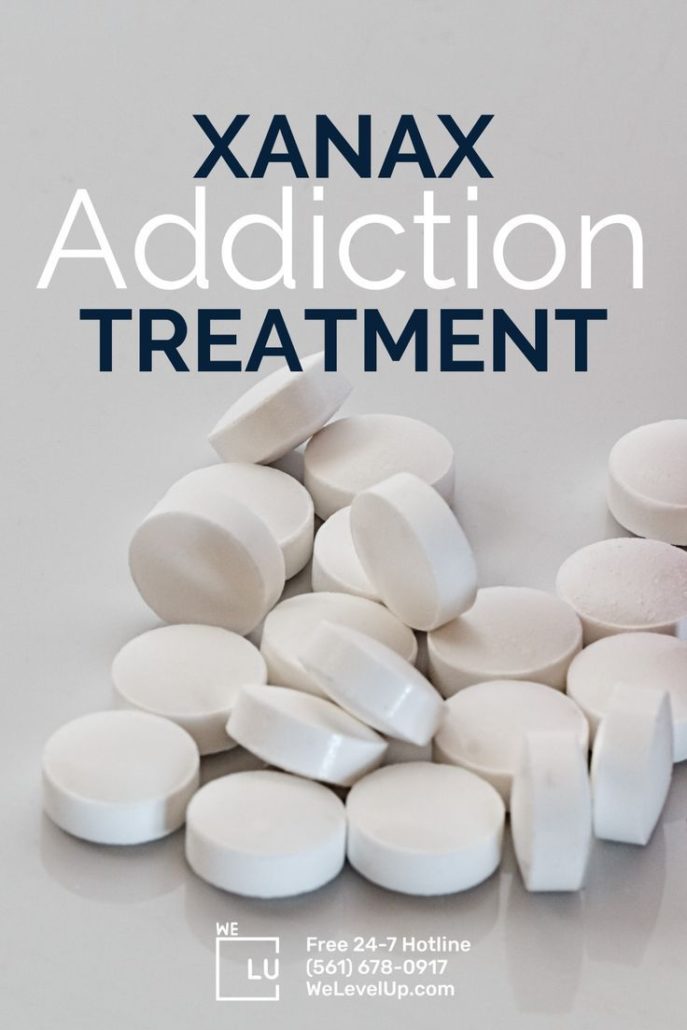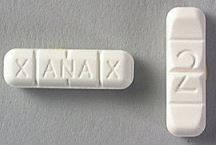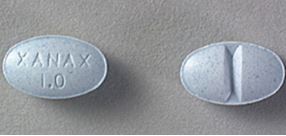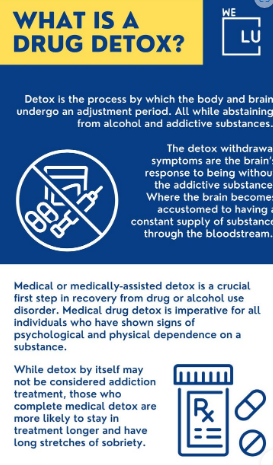Is Xanax Addictive?
Yes, Xanax (alprazolam) is addictive. Xanax belongs to a class of medications called benzodiazepines, which are commonly used to treat anxiety and panic disorders. Benzodiazepines work by enhancing the effects of a neurotransmitter called gamma-aminobutyric acid (GABA), which helps to reduce the activity of the brain and the central nervous system.
When used as prescribed, Xanax is generally safe and effective. However, benzodiazepines can be habit-forming, and prolonged use or abuse of Xanax can lead to physical dependence and addiction. The risk of addiction is higher in individuals who have a history of substance abuse or addiction.
Withdrawal symptoms can occur if Xanax is stopped abruptly or if the dose is reduced too quickly. Withdrawal symptoms can include anxiety, insomnia, agitation, irritability, tremors, sweating, and seizures. To minimize the risk of addiction and withdrawal, Xanax should be used only as prescribed and under the guidance of a healthcare professional.
How Addictive is Xanax?
Why is Xanax so addictive? Xanax (alprazolam) is highly addictive due to its interaction with the central nervous system (CNS). Xanax belongs to a class of drugs called benzodiazepines that work by enhancing the effects of a neurotransmitter called gamma-aminobutyric acid (GABA). GABA is an inhibitory neurotransmitter that helps to reduce the activity of the CNS. By enhancing GABA’s effects, Xanax reduces the activity of the CNS, leading to a calming effect that can help treat anxiety and panic disorders.
Over time, the body can become tolerant to Xanax’s effects, meaning that larger doses are needed to achieve the same level of calming effect. This tolerance can lead to physical dependence on the drug, which is characterized by withdrawal symptoms when Xanax use is discontinued. These withdrawal symptoms can include anxiety, insomnia, agitation, irritability, tremors, sweating, and seizures.
In addition to physical dependence, Xanax can also cause psychological dependence or addiction. The drug’s calming effects can be reinforcing, leading to continued use and abuse even when it is no longer medically necessary. Chronic abuse of Xanax can also cause long-term changes in the brain’s reward system, leading to persistent cravings.
What Works Like Xanax But Not Addictive?
Xanax is a medication that belongs to a class of drugs called benzodiazepines, which are known for their calming effects on the body and mind. However, benzodiazepines are also known to be addictive and can cause withdrawal symptoms if taken for a long time or in high doses.
If you are looking for alternatives to Xanax that are not addictive, there are several options available. Some examples include:
- Buspirone. This medication is used to treat anxiety disorders and works by affecting the levels of certain chemicals in the brain. It is not addictive and does not cause sedation.
- Hydroxyzine. This medication is used to treat anxiety and is also a sedative. It is not addictive and is generally well-tolerated.
- Cognitive Behavioral Therapy (CBT). This is a form of talk therapy that helps individuals learn new ways of thinking and behaving in response to anxiety-provoking situations. CBT is effective for treating anxiety and has no risk of addiction.
It is important to note that these alternatives may not work for everyone and should be discussed with a healthcare provider to determine the best course of treatment. Additionally, it is important to follow the prescribed dosage and instructions for any medication or therapy to avoid potential side effects or complications.
How Long Does it Take to Get Addicted to Xanax?
The time it takes to get addicted to Xanax can vary depending on several factors, such as the individual’s age, genetics, medical history, and pattern of use. However, in general, the risk of addiction increases with longer and higher doses of Xanax use.
How long does it take to become addicted to Xanax? According to the National Institute on Drug Abuse (NIDA), the risk of addiction to benzodiazepines increases after as little as two weeks of regular use. Additionally, individuals who take higher doses or use Xanax for longer periods are more likely to develop physical dependence and experience withdrawal symptoms when they stop using the drug.

Skip To:
Learn More:
Get Help. Get Better. Get Your Life Back.
Searching for Accredited Drug & Alcohol Rehab Centers Near You? Or Mental Health Support?
Even if you have failed previously, relapsed, or are in a difficult crisis, we stand ready to support you. Our trusted behavioral health specialists will not give up on you. Call us when you feel ready or want someone to speak to about therapy alternatives to change your life. Even if we cannot assist you, we will lead you wherever you can get support. There is no obligation. Call our hotline today.
FREE Addiction Hotline – Call 24/7Xanax Addiction Statistics
Benzodiazepines, such as Xanax are often used for the short-term treatment of anxiety. While benzodiazepine use is highly prevalent among U.S. adults, public health experts have not known what proportion of benzodiazepine users misuse them or meet criteria for benzodiazepine use disorders. A recent analysis suggests that benzodiazepine use disorders are relatively rare among the adults who use benzodiazepine medications, even if they are misusing them.
55 %
55 percent of nonmedical users acquired prescription painkillers (including Xanax) for free from a friend or relative
Source: NIDA
17.3 %
17.3 percent abused medications that were prescribed by their own doctor
Source: NIDA
50%
More than 50% of the nearly 176,000 emergency room visits for benzodiazepines in 2011 also involved alcohol or other drugs.
Source: SAMHSA
Xanax Drug Facts
What is Xanax (Alprazolam)?
Drug class: Benzodiazepines
Alprazolam, sold under the brand name Xanax, among others, is a fast-acting, potent tranquilizer of medium duration in the triazolobenzodiazepine class, which are benzodiazepines fused with a triazole ring.
Why is this medication prescribed?
Alprazolam is used to treat anxiety disorders and panic disorder (sudden, unexpected attacks of extreme fear and worry about these attacks). Alprazolam is in a class of medications called benzodiazepines. It works by decreasing abnormal excitement in the brain.
Other uses for this medicine
Alprazolam is also sometimes used to treat depression, fear of open spaces (agoraphobia), and premenstrual syndrome. Talk to your doctor about the possible risks of using this medication for your condition.
Warnings
Xanax can slow or stop your breathing, especially if you have recently used an opioid medication or alcohol.
Do not stop using Xanax without asking your doctor. You may have life-threatening withdrawal symptoms if you stop using the medicine suddenly after long-term use. Some withdrawal symptoms may last up to 12 months or longer.


Xanax Addiction Signs
Xanax abuse can quickly lead to addiction. Some common addiction to Xanax signs may include the following:
- Taking larger doses or taking the drug more frequently than prescribed
- Continuing to use Xanax despite negative consequences, such as relationship problems, financial difficulties, or job loss
- Withdrawal symptoms when attempting to quit or cut back on Xanax use, including anxiety, insomnia, sweating, nausea, and tremors
- Using Xanax for non-medical reasons, such as to get high or to relieve boredom
- Engaging in risky behaviors, such as driving while under the influence of Xanax or mixing it with other substances
- Neglecting responsibilities or social activities in favor of using Xanax
- Continuing to use Xanax even when it causes physical or mental health problems
If you or someone you know is exhibiting any of these signs of Xanax addiction, it may be time to seek help from a healthcare professional or addiction treatment specialist.

Get Your Life Back
Find Hope & Recovery. Get Safe Comfortable Detox, Addiction Rehab & Mental Health Dual Diagnosis High-Quality Care at the We Level Up Treatment Centers Network.
Hotline (877) 378-4154Xanax Addiction Symptoms
Xanax addiction can manifest in a variety of symptoms, both physical and psychological. Some of the major addicted to Xanax symptoms may include:
- Tolerance. A person may require increasingly larger doses of Xanax to achieve the desired effect, indicating that their body has become accustomed to the drug.
- Withdrawal. A person may experience withdrawal symptoms when they try to quit or cut back on Xanax use. These can include anxiety, insomnia, sweating, nausea, tremors, and seizures.
- Cravings. A person may have intense urges to use Xanax, even when it is not necessary or appropriate.
- Continued use despite negative consequences. A person may continue to use Xanax, even when it causes problems in their personal or professional life.
- Using Xanax to cope with negative emotions. A person may use Xanax to relieve anxiety or other negative emotions, rather than address the underlying issues.
- Social withdrawal. A person may become isolated or withdraw from social activities in favor of using Xanax.
- Interpersonal difficulties. A person may experience conflicts with friends, family, or coworkers due to their Xanax use.
- Neglecting responsibilities. A person may neglect important responsibilities, such as work, school, or parenting, in favor of using Xanax.
- Legal or financial problems. A person may experience legal or financial difficulties as a result of their Xanax use, such as getting arrested for driving under the influence or spending money that they cannot afford on the drug.
First-class Facilities & Amenities
World-class High-Quality Addiction & Mental Health Rehabilitation Treatment
Rehab Centers TourRenowned Addiction Centers. Serene Private Facilities. Inpatient rehab programs vary.
Addiction Helpline (877) 378-4154Proven recovery success experience, backed by a Team w/ History of:
15+
Years of Unified Experience
100s
5-Star Reviews Across Our Centers
10K
Recovery Success Stories Across Our Network
- Low Patient to Therapist Ratio
- Onsite Medical Detox Center
- Comprehensive Dual-Diagnosis Treatment
- Complimentary Family & Alumni Programs
- Coaching, Recovery & Personal Development Events
Xanax Addiction Side Effects
Xanax addiction can have a variety of side effects, both physical and psychological. Some of the common side effects of Xanax addiction may include:
- Drowsiness or fatigue
- Impaired coordination
- Slurred speech
- Memory impairment
- Mood swings
- Depression
- Anxiety
- Paranoia
- Hallucinations
- Seizures
- Respiratory depression
- Coma
- Death (in cases of overdose)
Long-term use of Xanax can also lead to physical dependence, which means the body has become accustomed to the drug and will experience withdrawal symptoms if it is stopped suddenly. Withdrawal symptoms can be severe and potentially life-threatening and may include:
- Anxiety
- Insomnia
- Irritability
- Tremors
- Sweating
- Nausea and vomiting
- Seizures
- Delirium
- Psychosis


World-class, Accredited, 5-Star Reviewed, Effective Addiction & Mental Health Programs. Complete Behavioral Health Inpatient Rehab, Detox plus Co-occuring Disorders Therapy.
CALL (877) 378-4154End the Addiction Pain. End the Emotional Rollercoaster. Get Your Life Back. Start Drug, Alcohol & Dual Diagnosis Mental Health Treatment Now. Get Free No-obligation Guidance by Substance Abuse Specialists Who Understand Addiction & Mental Health Recovery & Know How to Help.
Xanax Addiction Treatment
There is a strong link between mental health and substance abuse. Individuals who struggle with mood disorders like depression and anxiety are more susceptible to developing an addiction to drugs or alcohol, often to self-medicate symptoms of their underlying mental health condition. These co-occurring disorders can make each other worse without proper treatment.
To determine the most effective ways of Xanax addiction treatment, it’s crucial to get an accurate assessment of all the symptoms. When a mental health professional has evaluated the symptoms, it may be determined that another form of mental condition is present and needs a particular treatment. Very often, some combination of psychotherapy, medication, and lifestyle changes effectively cope with functional.
Medically Assisted Detox
Medical detox is often considered the first stage of treatment. It will help you navigate the complicated withdrawal process but doesn’t address patterns of thought and behavior contributing to drug abuse. Various treatment approaches and settings can help provide the ongoing support necessary to maintain long-term sobriety after you complete detox.
Cravings are very common during detox and can be challenging to overcome. This often leads to relapse. Constant medical care provided during inpatient treatment helps prevent relapse. Clinicians can offer the necessary medication and medical expertise to lessen cravings and the effects of withdrawals.
Psychotherapy for Depression and Anxiety
Several different modalities of psychotherapy have been used in the treatment of depression, including:
- Cognitive Behavioral Therapy (CBT) – An effective treatment that involves changing both the patterns of negative thoughts and the behavioral routines which are affecting the daily life of the depressed person for various forms of depression.
- Person-Centered Therapy – A strategy that allows and encourages clients to understand and resolve their concerns in a safe, supportive environment.
- Solution-Focused Therapy – Approach interested in solutions that can be quickly implemented with a simple first step leading to further positive consequences.
Xanax Dual Diagnosis Treatment
Substance abuse and mental health disorders often co-occur. In many cases, traumatic experiences can result in mental health disorders and substance abuse. Dual-diagnosis rehabilitation treats both of these issues together. The best approach for the treatment of dual diagnosis is an integrated system. This strategy treats both the substance abuse problem and the mental disorder simultaneously. Regardless of which diagnosis (mental health or substance abuse problem) came first, long-term recovery will depend largely on the treatment for both disorders done by the same team or provider.

Xanax Medication-Assisted Treatments
Medication-Assisted Treatments (MAT) for substance use and mental health disorders are commonly used in conjunction with one another. This includes the use of medications and other medical procedures. During your rehab, the staff from your treatment facility will help you identify what caused your addiction and teach you skills that will help you change your behavior patterns and challenge the negative thoughts that led to your addiction. Sometimes, the pressures and problems in your life lead you to rely on substances to help you forget about them momentarily.
Someone with a Xanax addiction may take up to 20 or 30 pills per day. If the user stops the Xanax dosages, they may experience withdrawal effects such as anxiety, restlessness, insomnia, and tremors. The development of tolerance and withdrawal are indications of addiction. Learning more about “how long does Xanax stay in system?” is a good first step toward recovery, but it doesn’t have to end there. Contact one of our helpful treatment specialists today if you or a loved one are struggling with long-term substance abuse and a co-occurring mental health condition such as anxiety and depression. We Level Up NJ treatment center specialists can provide information on dual diagnosis and detox programs to treat Xanax withdrawals.
Is Xanax Addictive? Prescription Drug Abuse Informative Video
Jen’s Addiction Recovery Testimonial
“I wanted my life back. I was a shell of a person. I wanted to be trusted, I wanted relationships back that I lost, mainly my children and family. It started innocent enough, I got into a car accident and then I got kind of sucked into the whole, you know, medication issue with the pills. And before I knew it, I was in a cloud. I was sucked in by addiction and with my mind, I kept thinking it was OK because a doctor was prescribing this for me, a doctor was giving me this, a doctor was giving me that.
So, I didn’t think I was doing anything wrong. Level Up supports my family and my relationships with my family and they’ve helped me grown as a person. When I first started there, I was so intimidated and kind of scared, you know? But, they’ve taught me, they’ve kind of taught me how to come into my own. And then, you know, when I get the call at the middle of the day from my twenty-one-year-old daughter, just to say ‘I love you, Mom.’, that’s amazing.”
Jen’s Addiction Recovery Testimonial
10 Popular “Is Xanax Addictive?” FAQs
-
Why is Xanax so addictive?
Xanax (alprazolam) is highly addictive due to its effect on the brain’s reward and pleasure centers. Xanax belongs to a class of medications called benzodiazepines, which enhance the effects of a neurotransmitter called gamma-aminobutyric acid (GABA) in the brain.
-
Is Xanax addicting?
Are Xanax addictive? Yes, Xanax (alprazolam) is a highly addictive medication. It is a type of benzodiazepine, which works by enhancing the effects of a neurotransmitter called gamma-aminobutyric acid (GABA) in the brain. This can lead to feelings of relaxation and calmness, which is why Xanax is commonly used to treat anxiety and panic disorders.
-
Is Klonopin addictive like Xanax?
Yes, Klonopin (clonazepam) is also a benzodiazepine medication like Xanax, and it can be addictive in a similar way. Like Xanax, Klonopin works by enhancing the effects of GABA in the brain, which can produce feelings of relaxation and calmness.
-
Is Hydroxyzine addictive like Xanax?
Hydroxyzine is not considered to be addictive in the same way as Xanax or other benzodiazepines. Hydroxyzine is an antihistamine medication that is sometimes used to treat anxiety or to help with sleep. It works by blocking certain neurotransmitters in the brain that are involved in anxiety and wakefulness.
-
Why is Xanax addictive?
Xanax is addictive because it can produce a pleasurable and calming effect that many people find desirable. It enhances the effects of GABA, a neurotransmitter in the brain that helps to regulate anxiety and stress. When taken in appropriate doses and for a short period of time, Xanax can be a useful tool for managing anxiety and panic disorders.
-
What drugs like Xanax that aren’t addictive?
There are several types of medications that can be used to treat anxiety without the risk of addiction. Here are a few examples, Selective serotonin reuptake inhibitors (SSRIs), Serotonin-norepinephrine reuptake inhibitors (SNRIs), Buspirone, and Hydroxyzine
-
Is 0.25 mg of Xanax addictive?
Is .25 mg of Xanax addictive? Using Xanax at a dose of 0.25 mg as prescribed by a doctor is generally not considered addictive in most individuals. This is because at this dose, Xanax is typically prescribed for short-term use to manage anxiety and panic symptoms and is unlikely to cause physical dependence or addiction when used for a short period of time.
-
What is the Xanax addiction rate?
According to the Substance Abuse and Mental Health Services Administration (SAMHSA), benzodiazepine abuse and addiction rates have been steadily increasing over the past several years. A study published in the Journal of Addiction Medicine found that the incidence of benzodiazepine misuse or abuse was highest among those aged 18-25, with a rate of approximately 5%.
-
Why do people get addicted to Xanax?
Repeated use of Xanax can cause changes in the brain that can lead to physical dependence and withdrawal symptoms when use is discontinued. This can create a cycle of use, where individuals continue to use the drug to avoid unpleasant withdrawal symptoms and to maintain the desired effects.
-
What is an alternative to Xanax non addictive drug?
What is a non addictive substitute for Xanax? There are several alternative medications that can be used to manage anxiety or panic disorders that are not addictive like Xanax. One common example is Buspirone his medication is a non-benzodiazepine anxiolytic that can help reduce anxiety without the risk of addiction or dependence.
Search We Level Up NJ “Is Xanax Addictive?” Topics & Resources
Sources
[1] Lorazepam: MedlinePlus Drug Information – https://medlineplus.gov/druginfo/meds/a682053.html/ Tags: Is Xanax Addictive?/Xanax Addiction
[2] Lorazepam | C15H10Cl2N2O2 – PubChem (nih.gov) – National Center for Biotechnology Information (2023). PubChem Compound Summary for CID 3958, Lorazepam/Tags: Is Xanax Addictive?/Xanax Addiction
[3] A Review of Alprazolam Use, Misuse, and Withdrawal – PMC (nih.gov) – Ait-Daoud N, Hamby AS, Sharma S, Blevins D. A Review of Alprazolam Use, Misuse, and Withdrawal. J Addict Med. 2018 Jan/Feb;12(1):4-10. doi: 10.1097/ADM.0000000000000350. PMID: 28777203; PMCID: PMC5846112/Tags: Is Xanax Addictive?/Xanax Addiction
[4] National Health Statistics Reports, Number 137, January 17, 2020 (cdc.gov) – https://www.cdc.gov/nchs/data/nhsr/nhsr137-508.pdf/Tags: Is Xanax Addictive?/Xanax Addiction
[5] Failure of lorazepam to treat alprazolam withdrawal in a critically ill patient – PMC (nih.gov) – Sachdev G, Gesin G, Christmas AB, Sing RF. Failure of lorazepam to treat alprazolam withdrawal in a critically ill patient. World J Crit Care Med. 2014 Feb 4;3(1):42-4. doi: 10.5492/wjccm.v3.i1.42. PMID: 24834401; PMCID: PMC4021153/Tags: Is Xanax Addictive?/Xanax Addiction
[6] Alprazolam and diazepam: addiction potential – PubMed (nih.gov) – Juergens S. Alprazolam and diazepam: addiction potential. J Subst Abuse Treat. 1991;8(1-2):43-51. doi: 10.1016/0740-5472(91)90026-7. PMID: 2051498/Tags: Is Xanax Addictive?/Xanax Addiction
[7] The benzodiazepine withdrawal syndrome – PubMed (nih.gov) – Pétursson H. The benzodiazepine withdrawal syndrome. Addiction. 1994 Nov;89(11):1455-9. doi: 10.1111/j.1360-0443.1994.tb03743.x. PMID: 7841856./Tags: Is Xanax Addictive?/Xanax Addiction
[8] A Review of Alprazolam Use, Misuse, and Withdrawal – PMC (nih.gov) – Ait-Daoud N, Hamby AS, Sharma S, Blevins D. A Review of Alprazolam Use, Misuse, and Withdrawal. J Addict Med. 2018 Jan/Feb;12(1):4-10. doi: 10.1097/ADM.0000000000000350. PMID: 28777203; PMCID: PMC5846112/Tags: Is Xanax Addictive?/Xanax Addiction
[9] DailyMed – XANAX- alprazolam tablet (nih.gov) – https://dailymed.nlm.nih.gov/dailymed/drugInfo.cfm?setid=388e249d-b9b6-44c3-9f8f-880eced0239f/Tags: Is Xanax Addictive?/Xanax Addiction
[10] DailyMed – XANAX- alprazolam tablet (nih.gov) – https://dailymed.nlm.nih.gov/dailymed/drugInfo.cfm?setid=388e249d-b9b6-44c3-9f8f-880eced0239f/Tags: Is Xanax Addictive?/Xanax Addiction